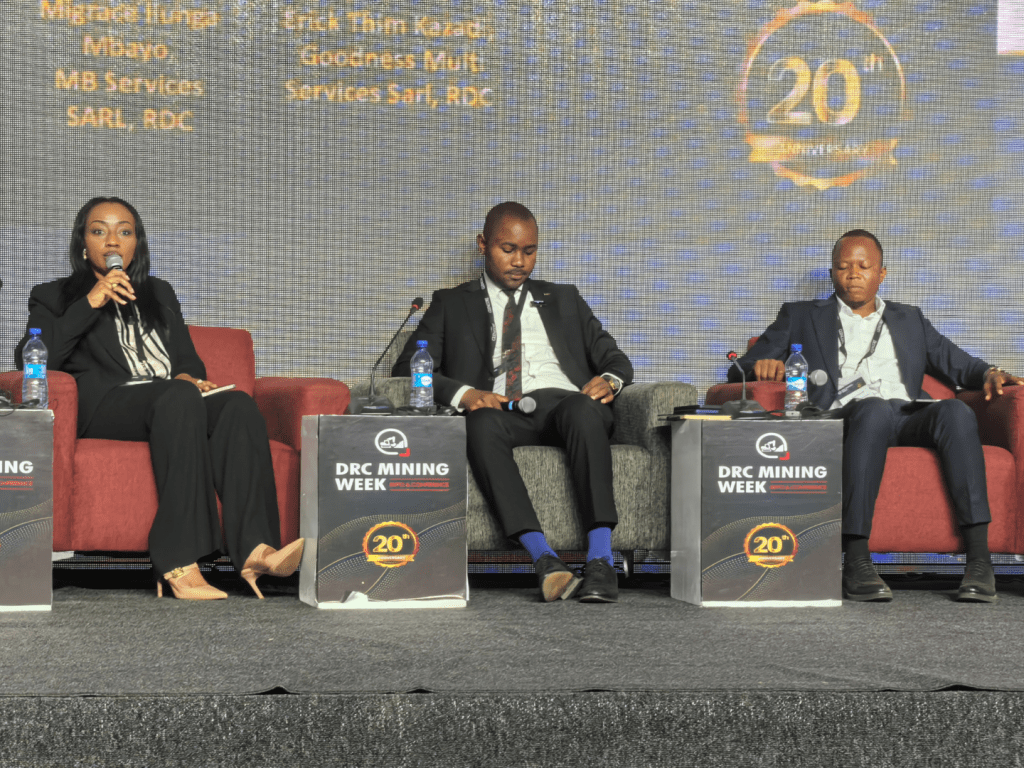At DRC Mining Week 2025, a bold new initiative took centre stage—the Young Entrepreneurs Program (YEP). Spearheaded by Nathalie Tshituka, CEO of The Queen DRC, the session invited young minds to engage directly in conversations that shape the future of mining.
YEP is a launchpad designed to equip, empower, and integrate the next generation of Congolese leaders into the mining value chain.
The panel featured young entrepreneurs Nina Ichimba Anifa, Founder and Manager, Amani Group Sarl; Erick Thim Kazadi, CEO of Goodness Multi Services Sarl; and Migrace Ilunga Mbayo, Managing Director of MB Services SARL. Their message was consistent: young people are ready to lead, but they need the right environment to thrive.
ALSO READ:
DRC Mining Week 2025: Empowering communities key to sustainable, secure mining
Mbayo said they are seeing younger professionals step into leadership roles. But internship opportunities remain limited, and key positions are still dominated by expatriates. “Integration is underway—but it’s not yet effective on a national scale,” added Mbayo.
He emphasised that real progress would depend on personal drive, entrepreneurial spirit, and institutional reform—particularly within education.
Mbayo also called for urgent reform in the national education system to better reflect the realities and opportunities of the mining sector.
“Our schools must prepare students not just to seek jobs but to create them,” he said. “We need partnerships between universities and mining companies, and we need to embed industry-relevant skills early—especially in STEM and digital fields.”
ALSO READ:
DRC Mining Week 2025: Positioning DRC as a leading mining country
This sentiment was echoed by Kazadi, noting that not every student will land a job in an established mining firm, but all should be empowered to build businesses that support the sector.
Anifa shared her own success story through the Ushindi program, run by the Centro de Ressources de Lubumbashi (CDR). “Through intensive coaching and technical mentorship, I’ve learnt how to manage accounting systems, certify financial statements, and develop viable financing plans. “Programmes like these equip us to be competitive nationally and globally,” said Anifa.
Kazadi emphasised the critical role of policy reform. In particular, the subcontracting law and government institutions like ARSP (Subcontracting Regulatory Authority), Fonds de Garantie de l’Entrepreneuriat au Congo (FOGEC), and GUS (one-stop business creation platform) have opened new avenues for local entrepreneurs.

“We used to see foreign firms dominate the contracts. “Today, thanks to the subcontracting law, Congolese entrepreneurs are being heard and respected,” said Kazadi. “Now we can be majority shareholders, lead projects, and access public tenders without favouritism.”
He also stressed that this institutional support must be sustained and improved if Congolese youth are to truly lead within the sector.
While access to markets has improved, Anifa raised a critical challenge: financing.
“Technical training and market access mean little without capital,” she said. “Self-financing is often the only option, and it’s not enough for many young entrepreneurs. We need real financial support to integrate meaningfully into the mining sector.”

